Speech-Language Pathologist Cover Letter Examples

May 29, 2025
|
12 min read
Craft a winning speech-language pathologist cover letter that speaks volumes. Find your voice, highlight your strengths, and articulate why you're the perfect fit with our expert tips. Let your skills resonate and transition into your dream role.
Rated by 348 people
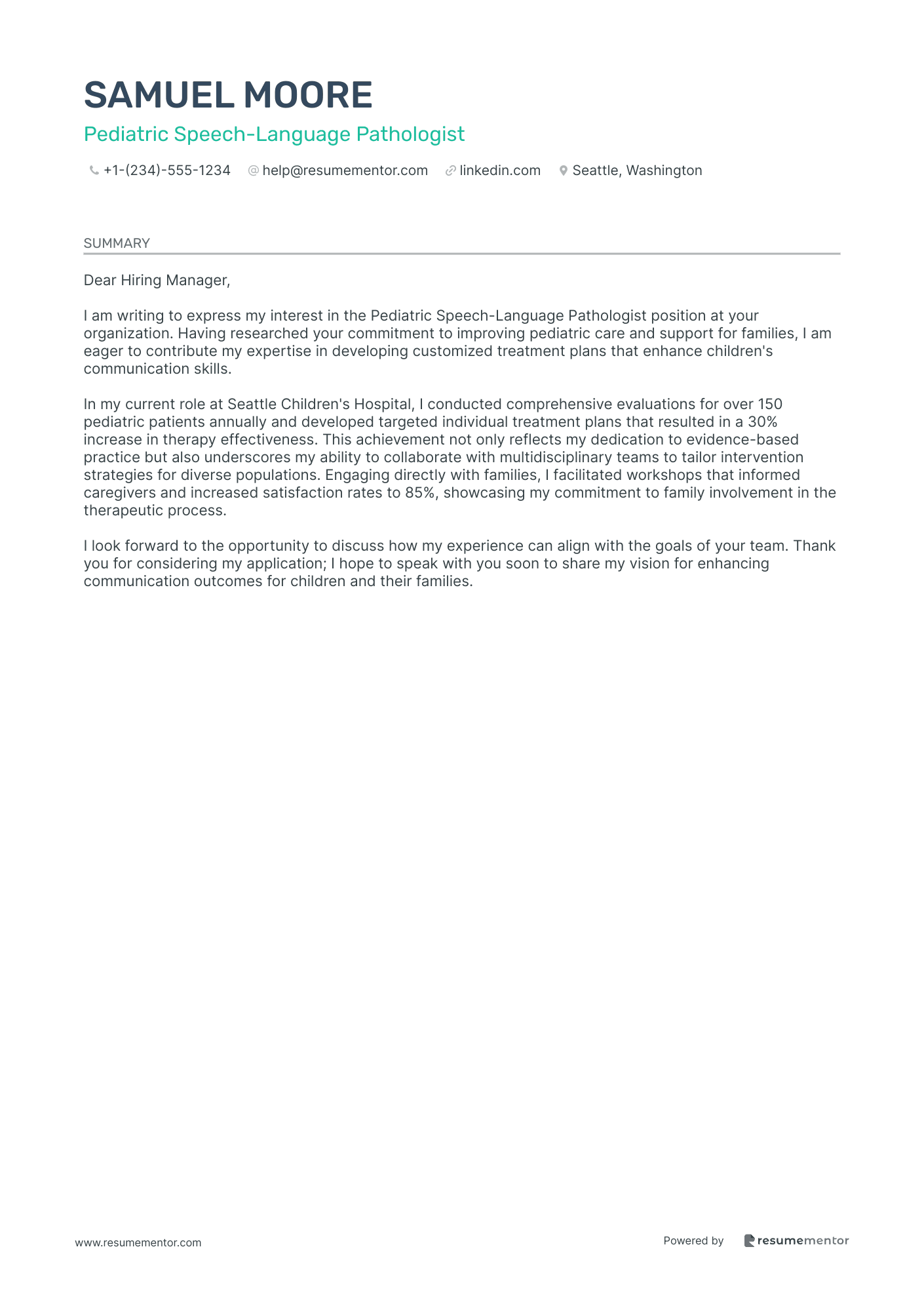
Pediatric Speech-Language Pathologist
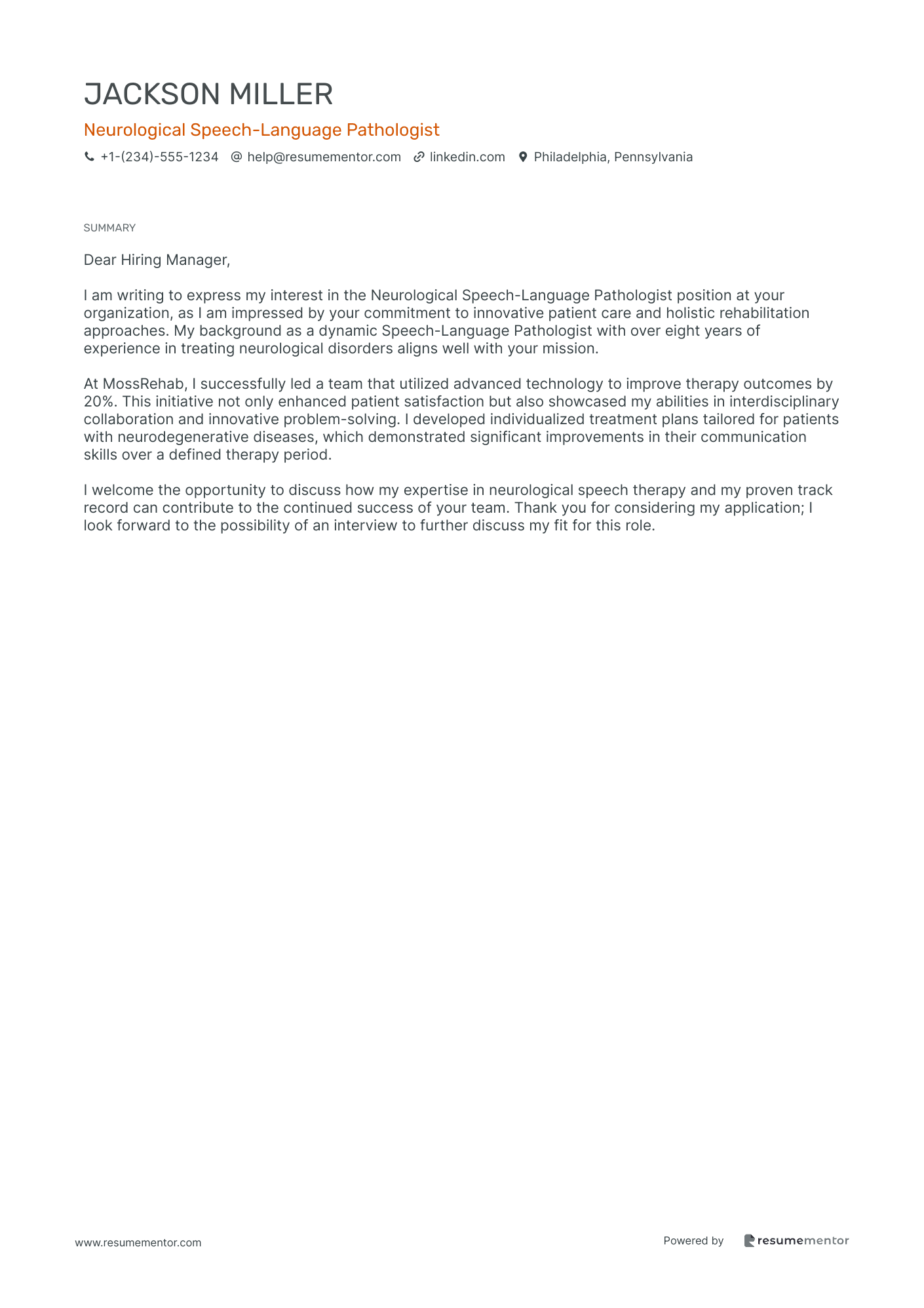
Neurological Speech-Language Pathologist
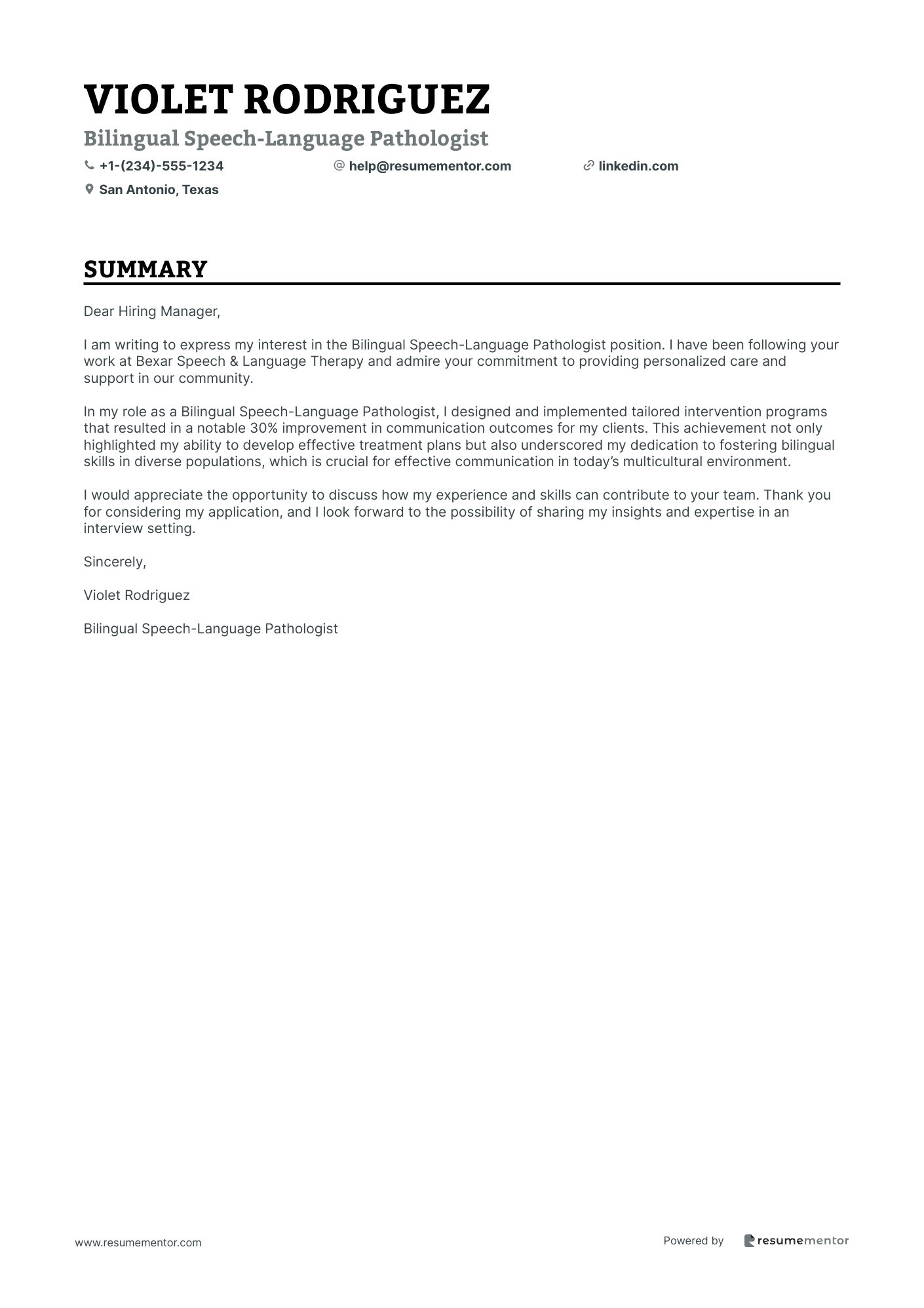
Bilingual Speech-Language Pathologist
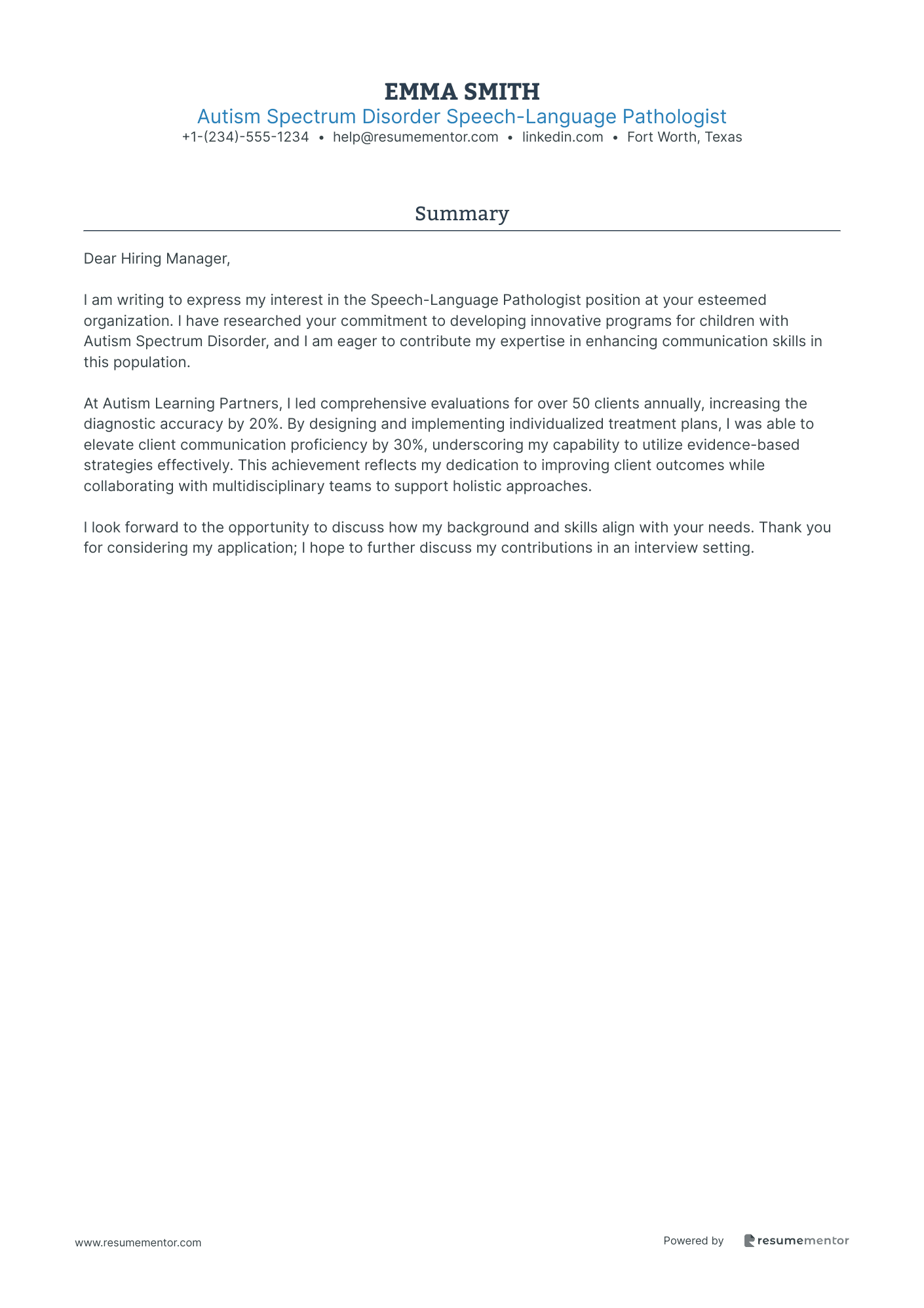
Autism Spectrum Disorder Speech-Language Pathologist
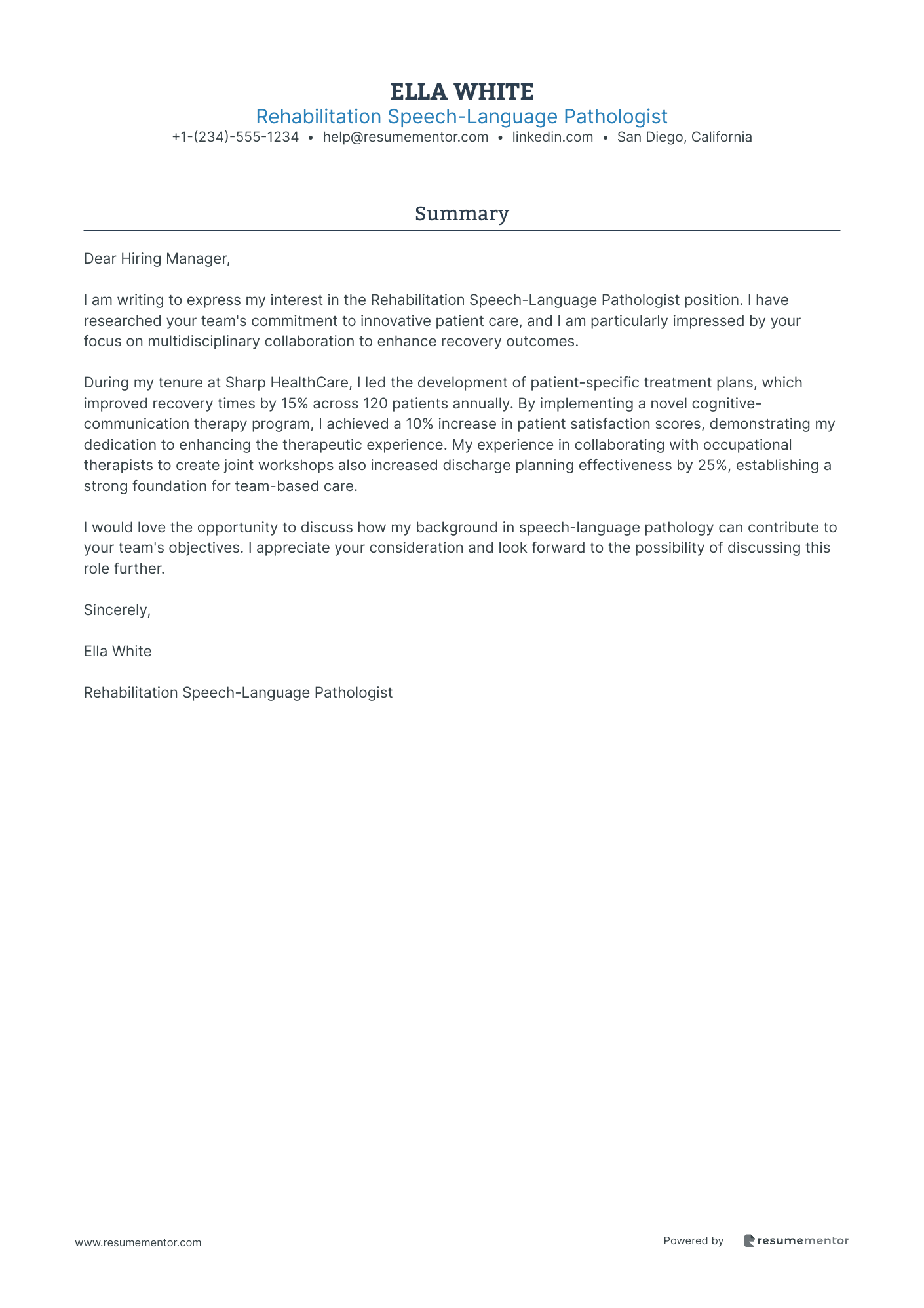
Rehabilitation Speech-Language Pathologist
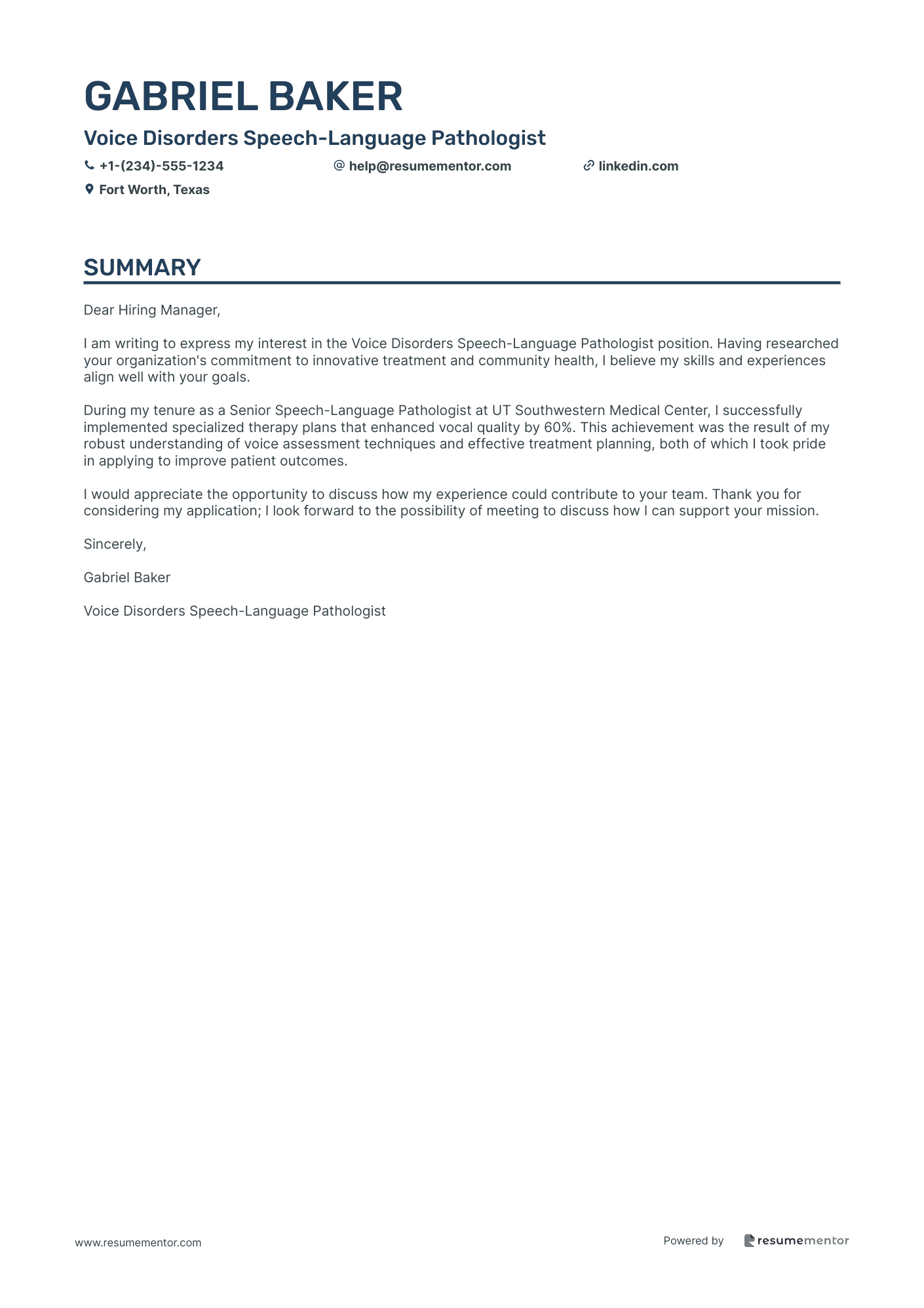
Voice Disorders Speech-Language Pathologist
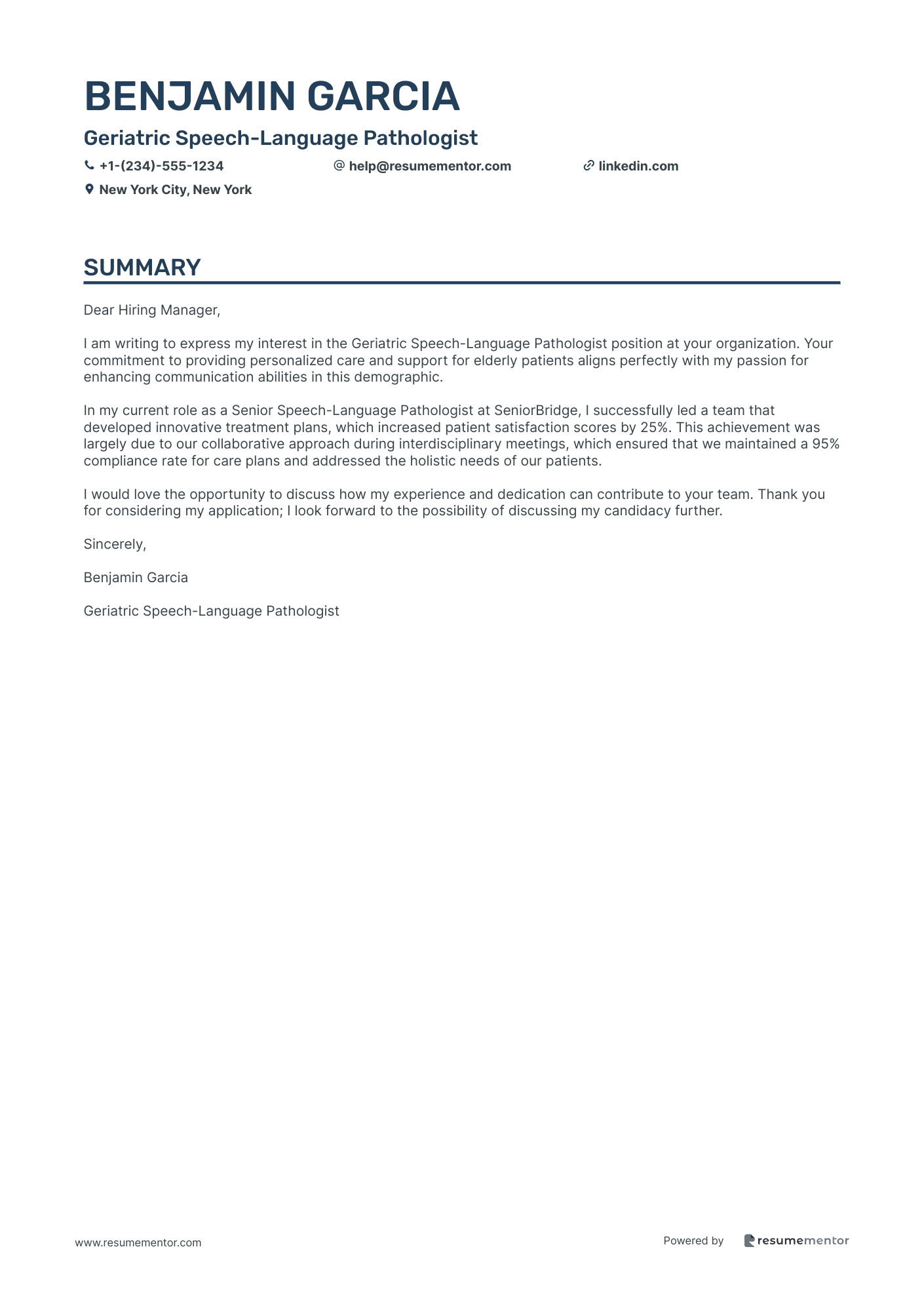
Geriatric Speech-Language Pathologist
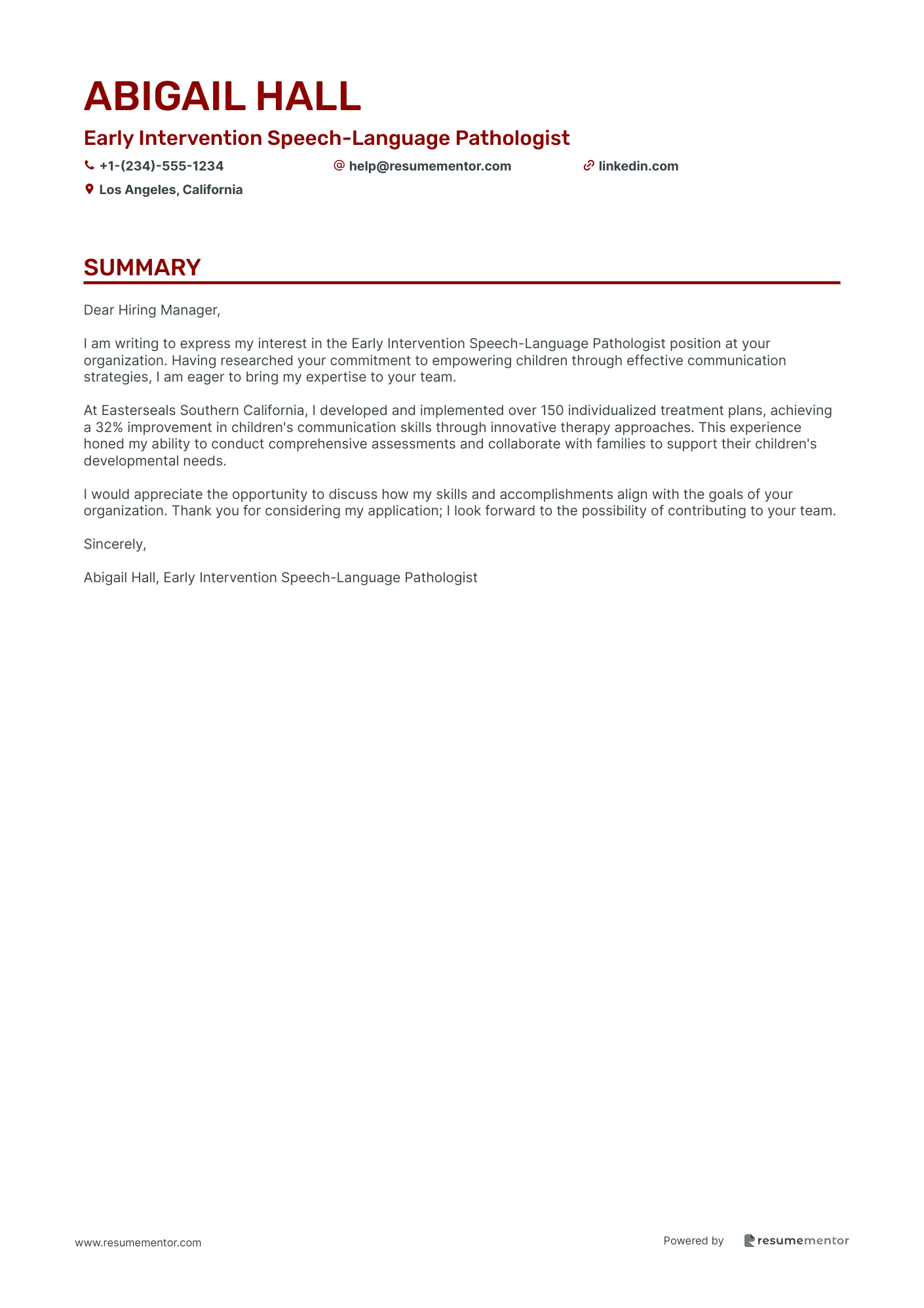
Early Intervention Speech-Language Pathologist
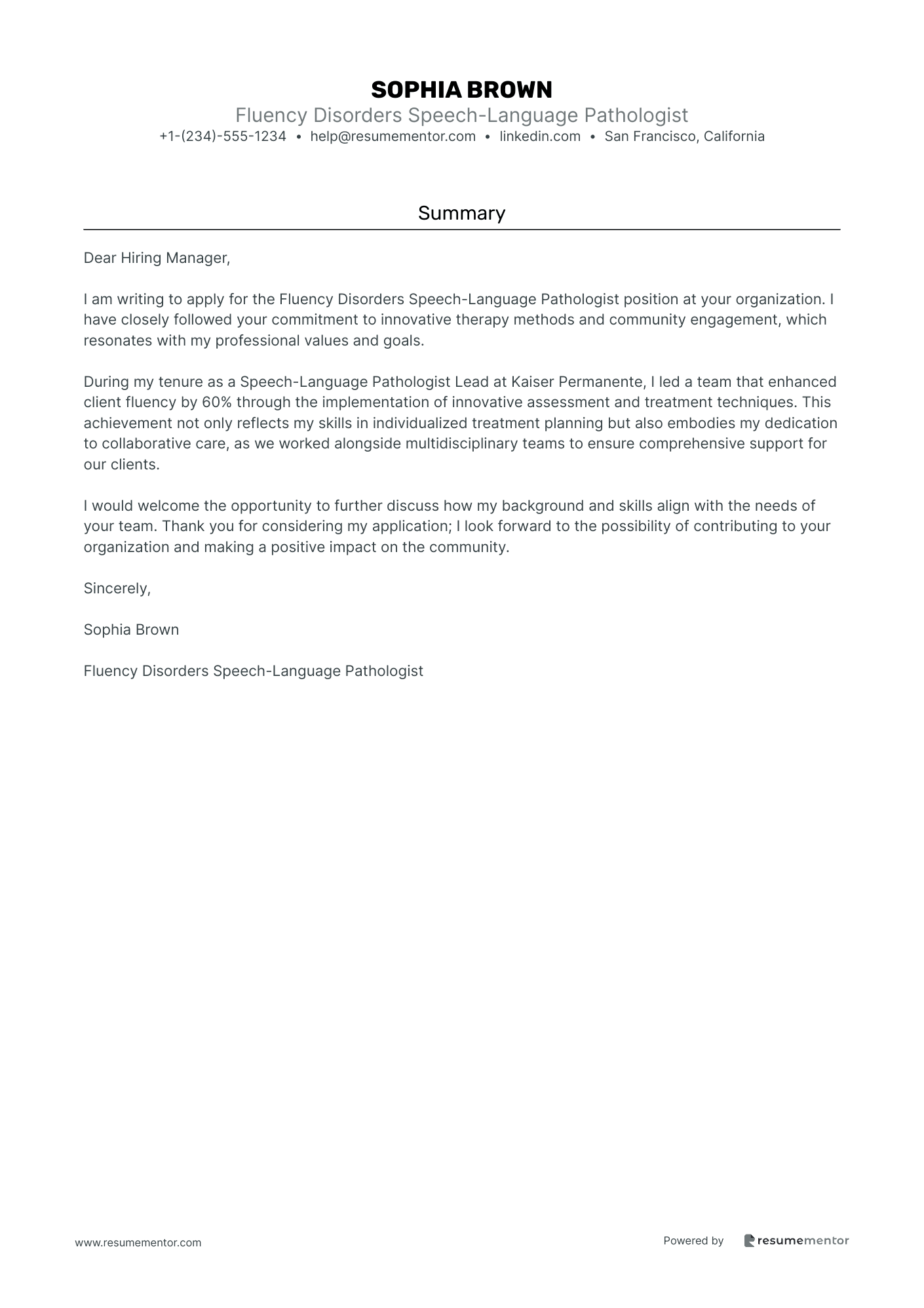
Fluency Disorders Speech-Language Pathologist
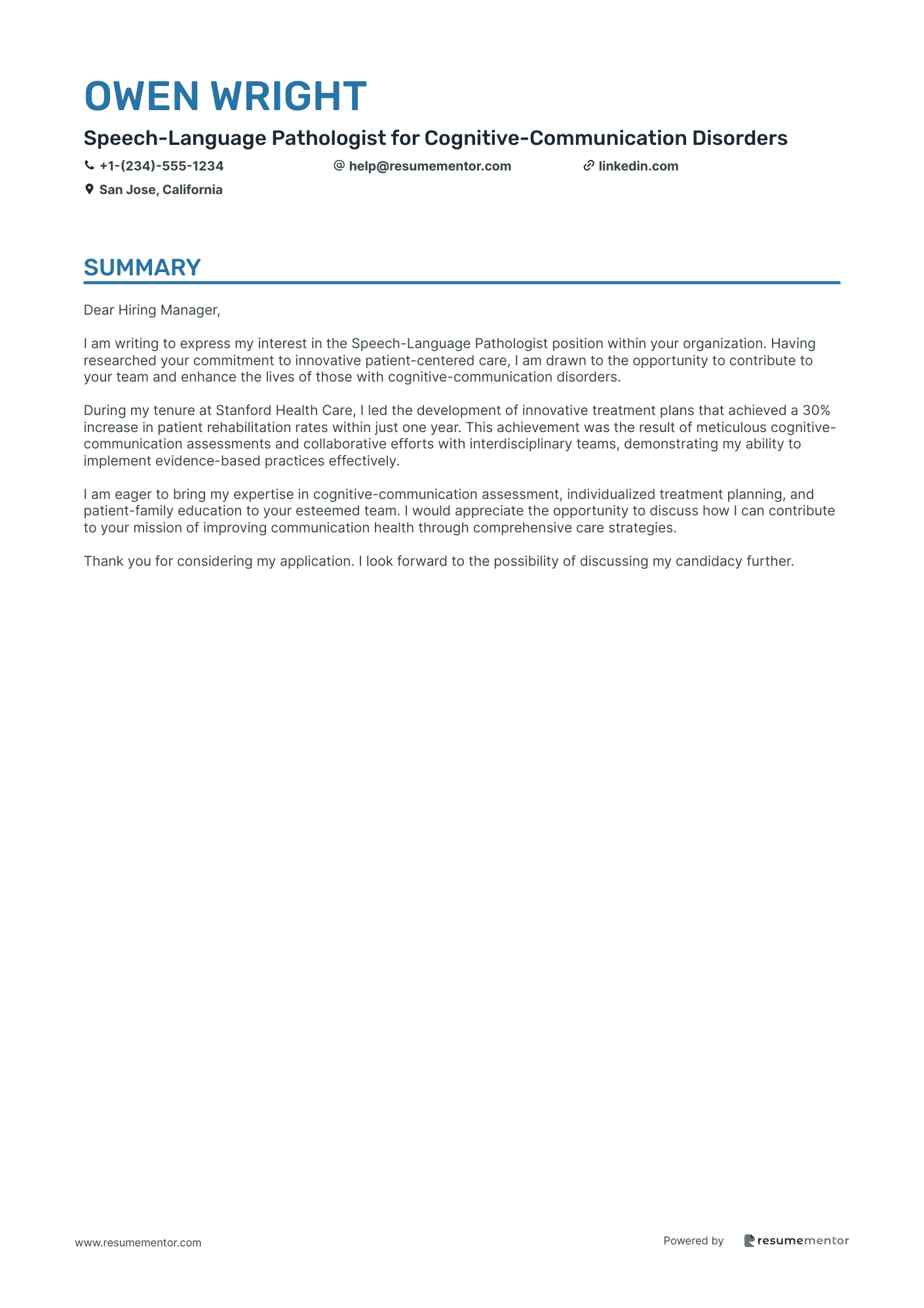
Speech-Language Pathologist for Cognitive-Communication Disorders

Pediatric Speech-Language Pathologist cover letter sample
Neurological Speech-Language Pathologist cover letter sample
Bilingual Speech-Language Pathologist cover letter sample
Autism Spectrum Disorder Speech-Language Pathologist cover letter sample
Rehabilitation Speech-Language Pathologist cover letter sample
Voice Disorders Speech-Language Pathologist cover letter sample
Geriatric Speech-Language Pathologist cover letter sample
Early Intervention Speech-Language Pathologist cover letter sample
Fluency Disorders Speech-Language Pathologist cover letter sample
Speech-Language Pathologist for Cognitive-Communication Disorders cover letter sample
Related Articles

Continue Reading
Check more recommended readings to get the job of your dreams.
Resume
Resources
Tools
© 2026. All rights reserved.
Made with love by people who care.
